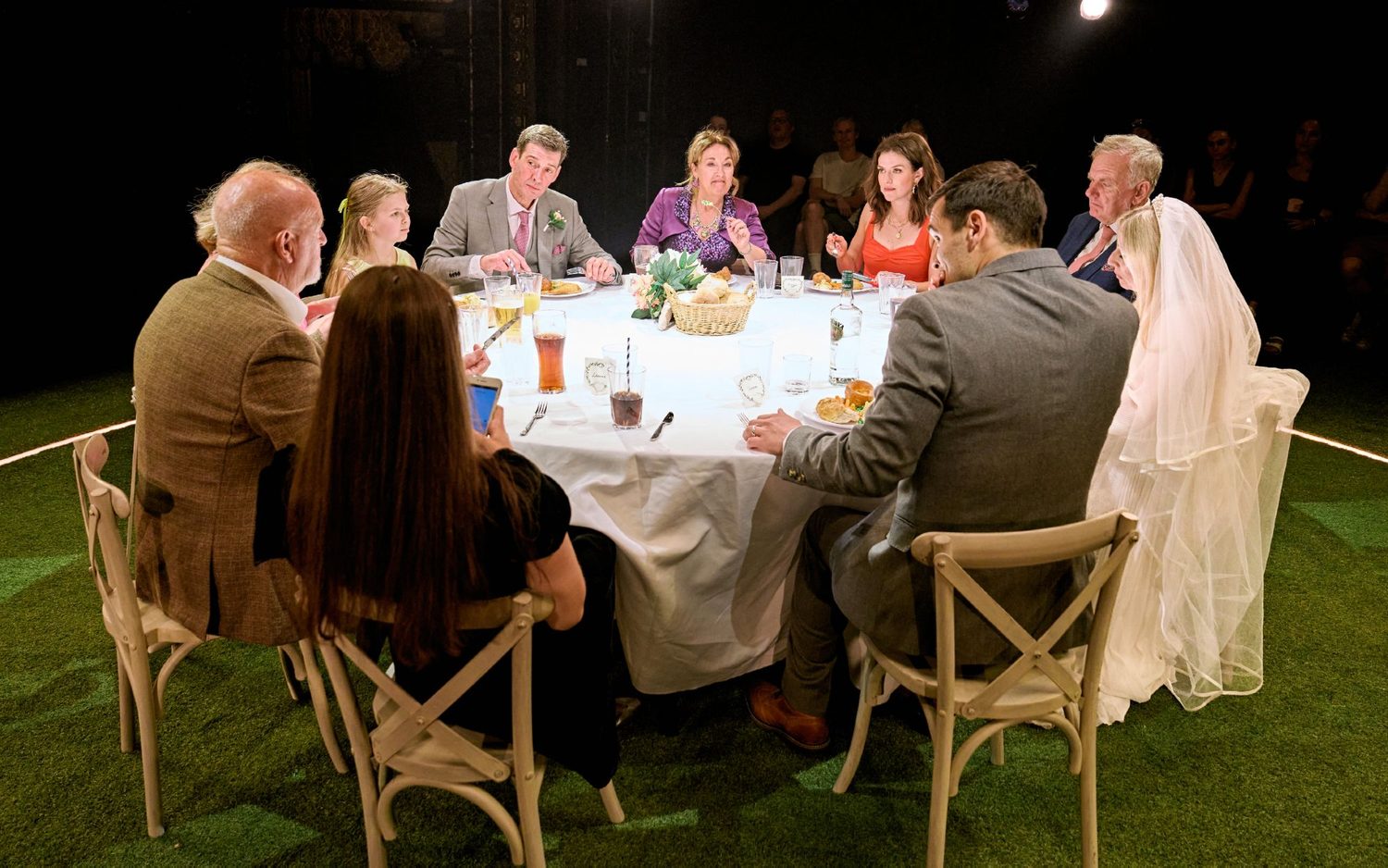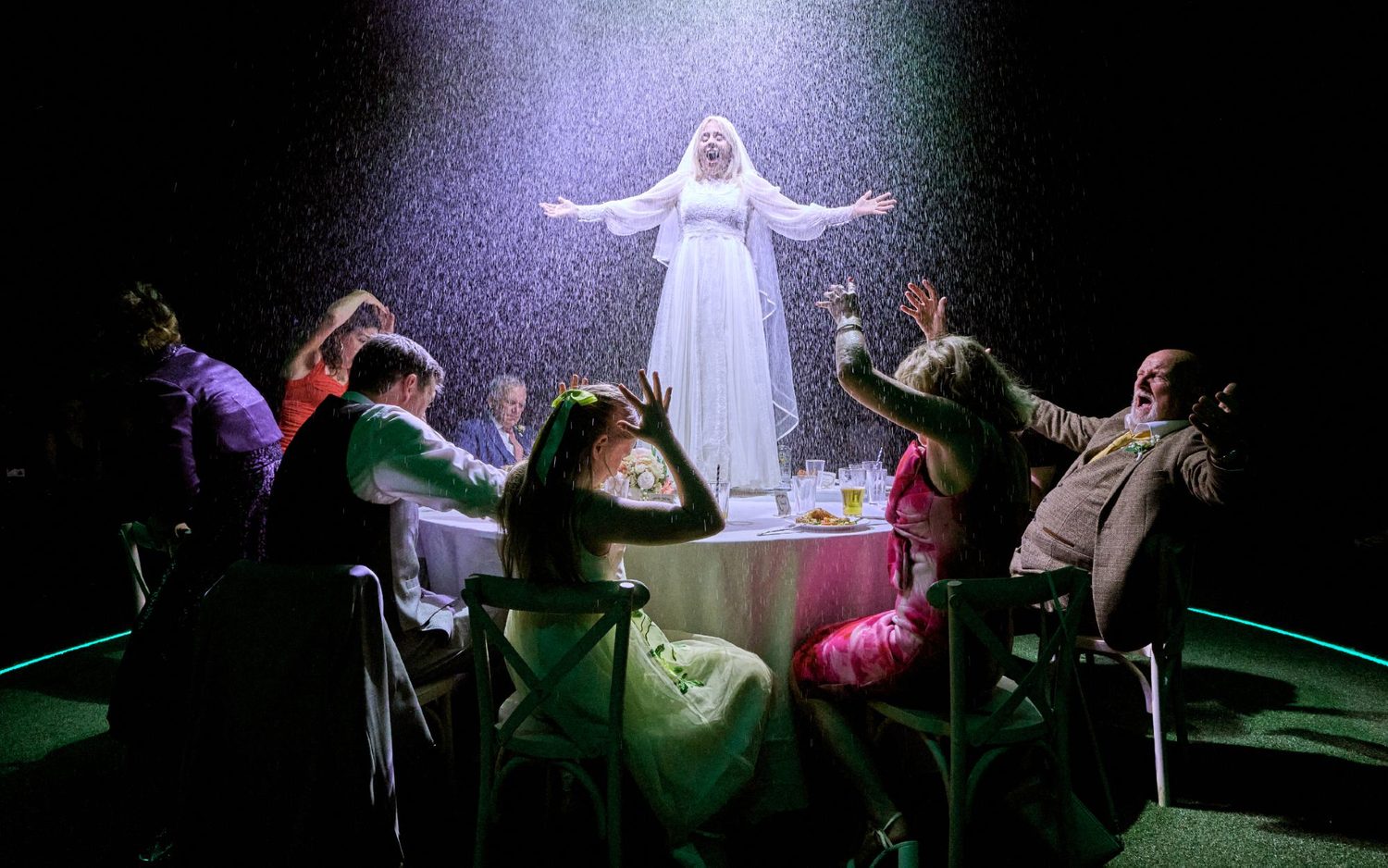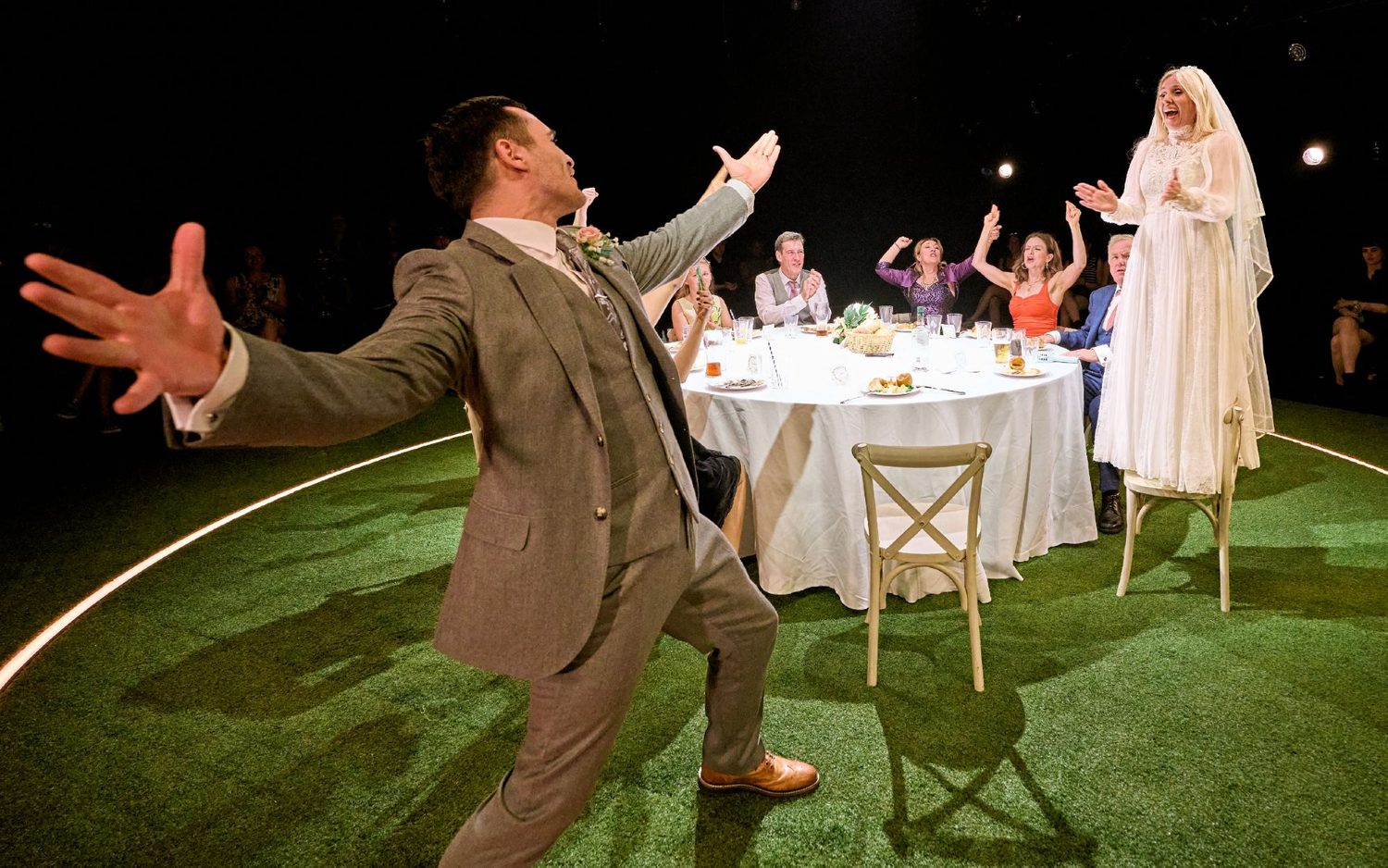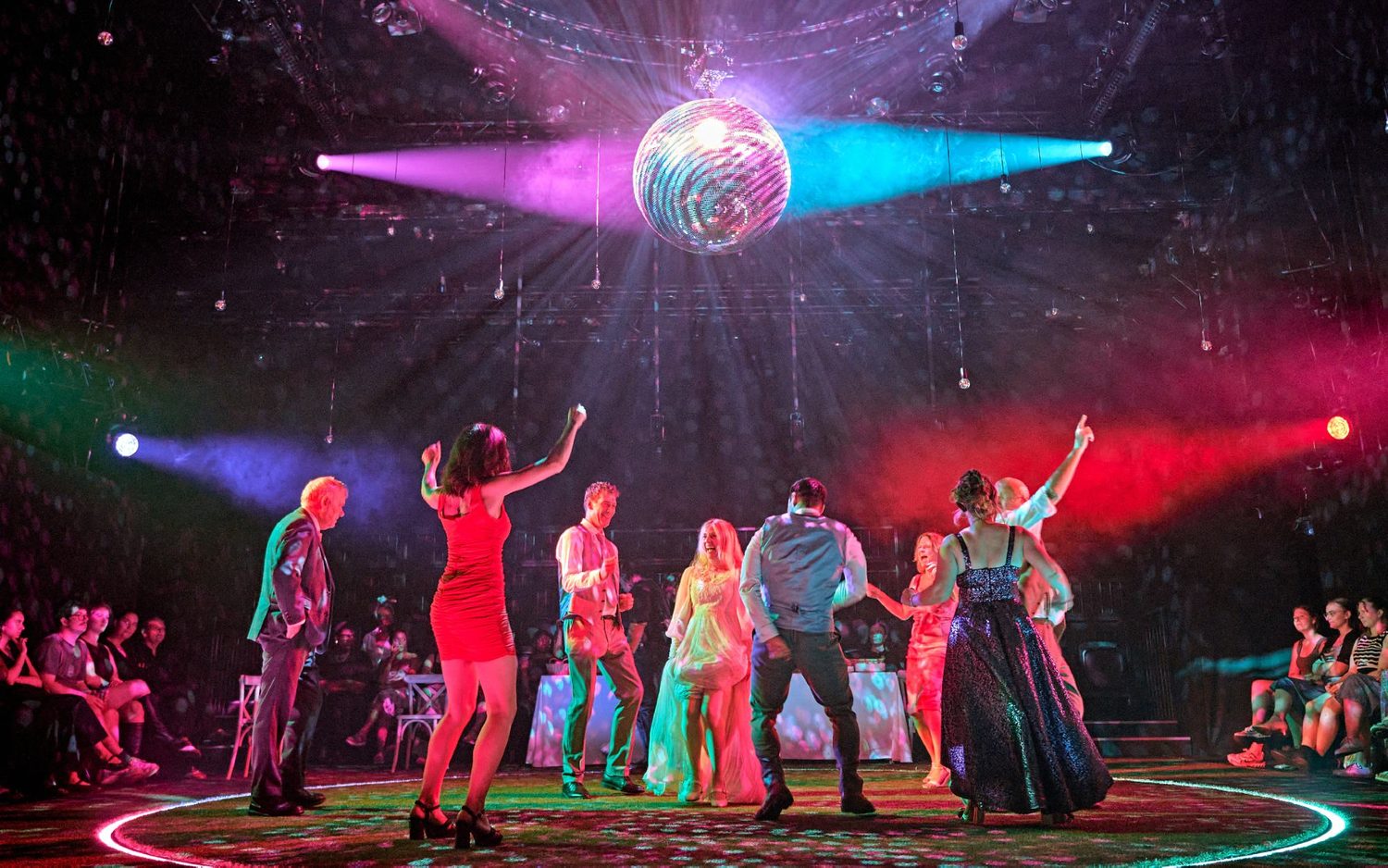Walking into Till the Stars Come Down feels like stepping into a lived‑in world of laughter, secrets, and simmering tensions. Set in a former coal‑mining town in Nottinghamshire, the play opens on Sylvia’s wedding morning, capturing that peculiar truth of weddings: ritualised joy masking simmering unrest. Written by Beth Steel and directed by Bijan Sheibani, it unfolds over 24 hours, pulling the audience into a labyrinth of family, class, love—and the things left unsaid.
At first glance, this seems like a straightforward family dramedy. But the writing—warm, witty, and sharply real—reveals deeper emotional stakes beneath the surface. The three sisters—Sylvia, Hazel, and Maggie—are drawn with vivid specificity. Their banter feels lived‑in, as if you’re eavesdropping on voices you've heard before. Over morning coffees and speech rehearsals, humour bubbles naturally, but it’s laced with unease. By the time Marek, Sylvia’s Polish fiancé, enters the scene, the subtle fractures in the family dynamic are already visible.

The energy shifts beautifully between lighthearted warmth and darker undercurrents. Steel’s dialogue flows with working‑class wit, shifting tones until conflict becomes inevitable: resentment, jealousy, unspoken desire. And those emotional turns feel earned—not tacked on. The second act deepens that tension; a whispered confrontation, a sobbing plea—Hazel’s breakdown in particular lands with gutting impact. It’s a quiet crescendo of pain and longing, all framed within the fallout of a day that promised unity.
The ensemble cast infuses each scene with truth. Aunty Carol, played with wild verve, steals every moment she’s in with scathing one‑liners and anarchic energy. Sylvia’s hopeful anticipation turns fragile under pressure, while Maggie drifts between detachment and desire, torn between self‑preservation and familial devotion. Marek, though absent from the start, arrives more shadow than person—his presence unsettling, layered with outsider tension. He feels under‑drawn at times, yet that ambiguity serves the play’s discomforting honesty: this is a man wed into prejudice he must endure quietly.

Staging and design amplify the emotional cadence. Samal Blak’s revolving astroturf set literally spins the action around the audience, drawing them into the intimacy of the wedding feast and the chaos beneath it. Paule Constable’s lighting takes a starring turn—mirrors reflecting a glitter ball, shifting hues to mirror emotional shifts, and stark contrasts that echo the day’s breakdown. Gareth Fry’s sound design punctuates transitions with everything from Brit‑pop dance tracks to elegiac tones, reminding you that time and mood are never static.
Still, the play isn’t without flaws. In a few moments, stylistic flourishes—like planetary tableaux or freeze‑frames—feel disconnected from the naturalism that otherwise grounds the piece. Certain character beats, particularly Marek’s limited arc, can feel schematic, as though used to tick thematic boxes rather than paint full flesh‑and‑blood. And the play’s final moments, while powerful, don’t resolve the emotional tension—they shatter it instead, leaving echoes more than answers.

But perhaps that’s the point. Till the Stars Come Down doesn’t offer neat closure. It asks its audience to sit with complexity, discomfort, contradiction. It recognises that love, loyalty, class, race, and memory rarely line up neatly—even at a wedding meant to bind them together.
Leaving the theatre, there’s a sense of loss: lost opportunity, lost futures, the loss of what a family might have been without inertia or ignorance. Yet alongside that emptiness there’s vitality: a dialogue that hums, scenes that crackle, characters who exist in your mind long after the final blackout.

Till the Stars Come Down emerges as a theatrical joy and grief intertwined—a sweeping, intimate portrait of working‑class life, where comedy and heartbreak coexist in close quarters. It’s raw and rich, flawed but generous. If you're drawn to theatre that refuses comfort, that challenges with laughter and discomfort in equal measure, this wedding is one you must attend.

